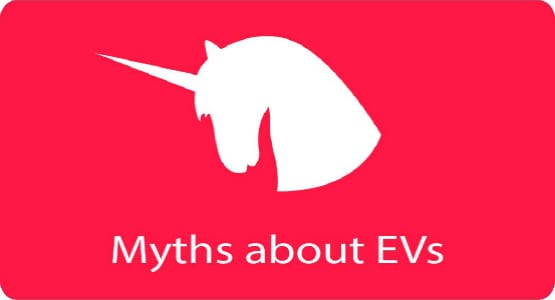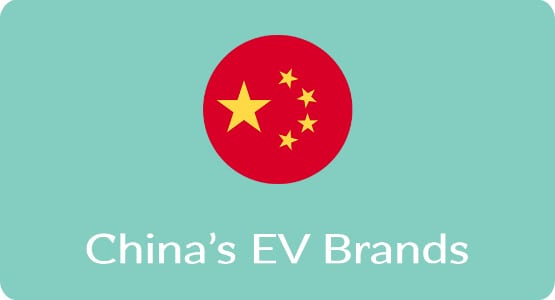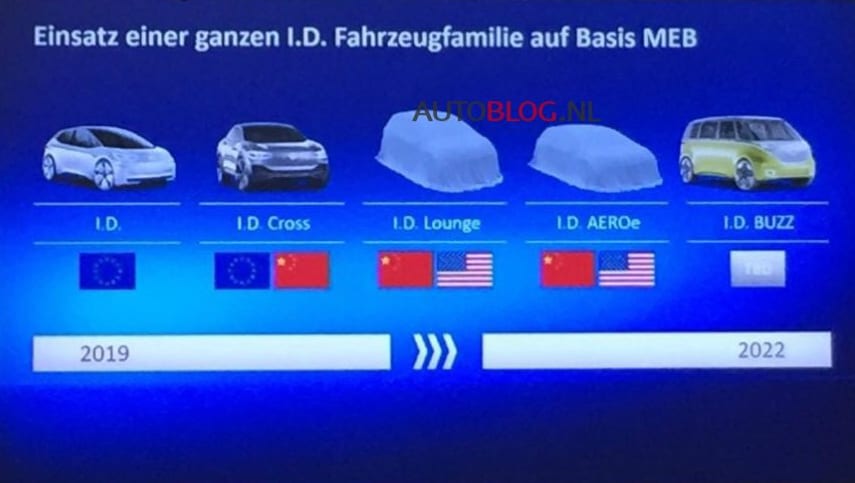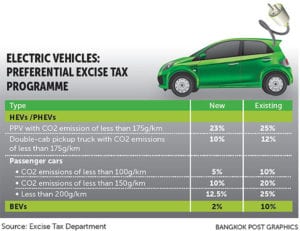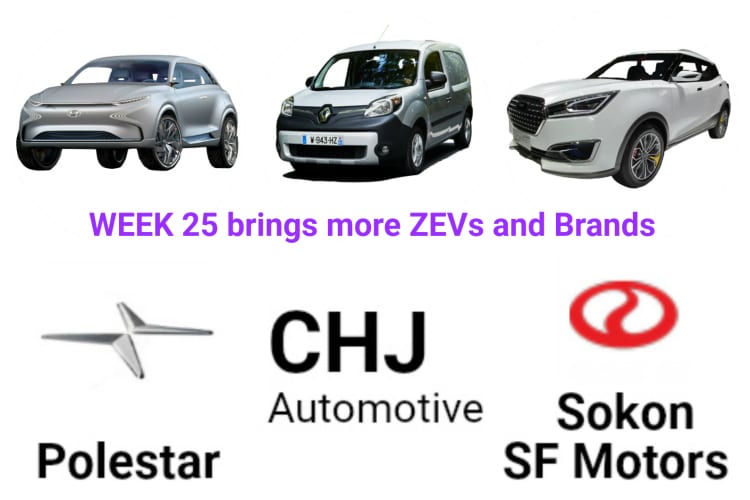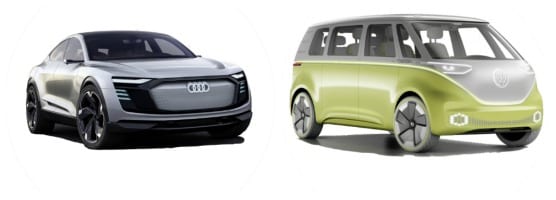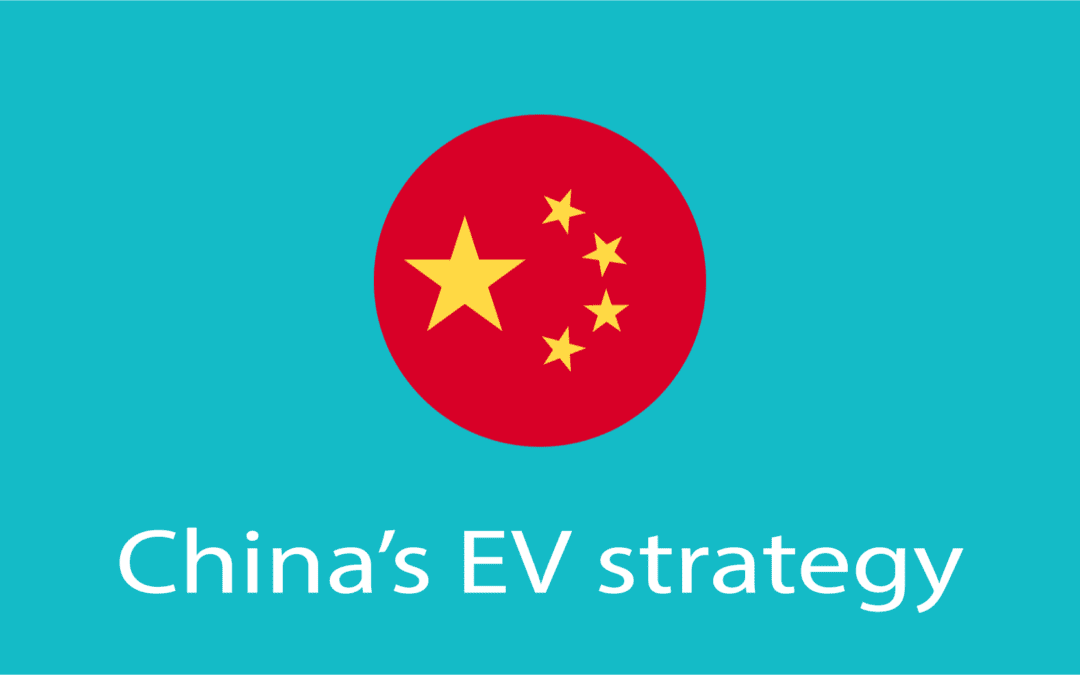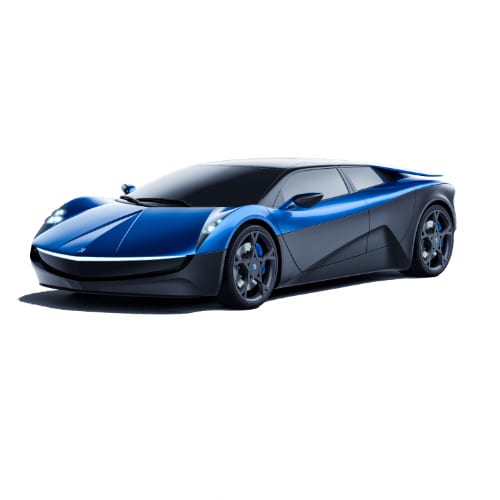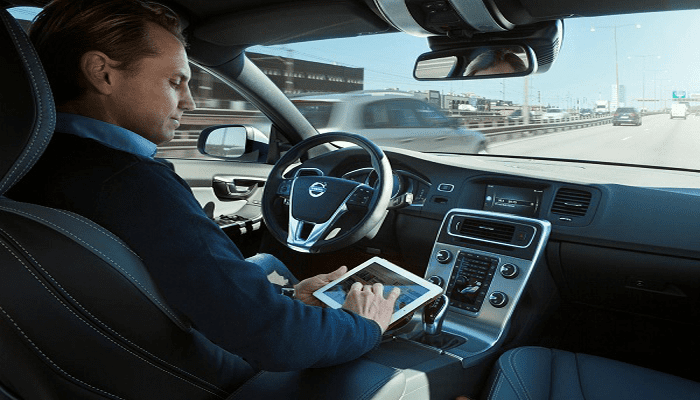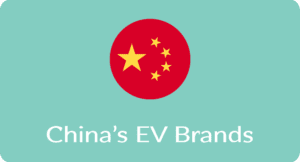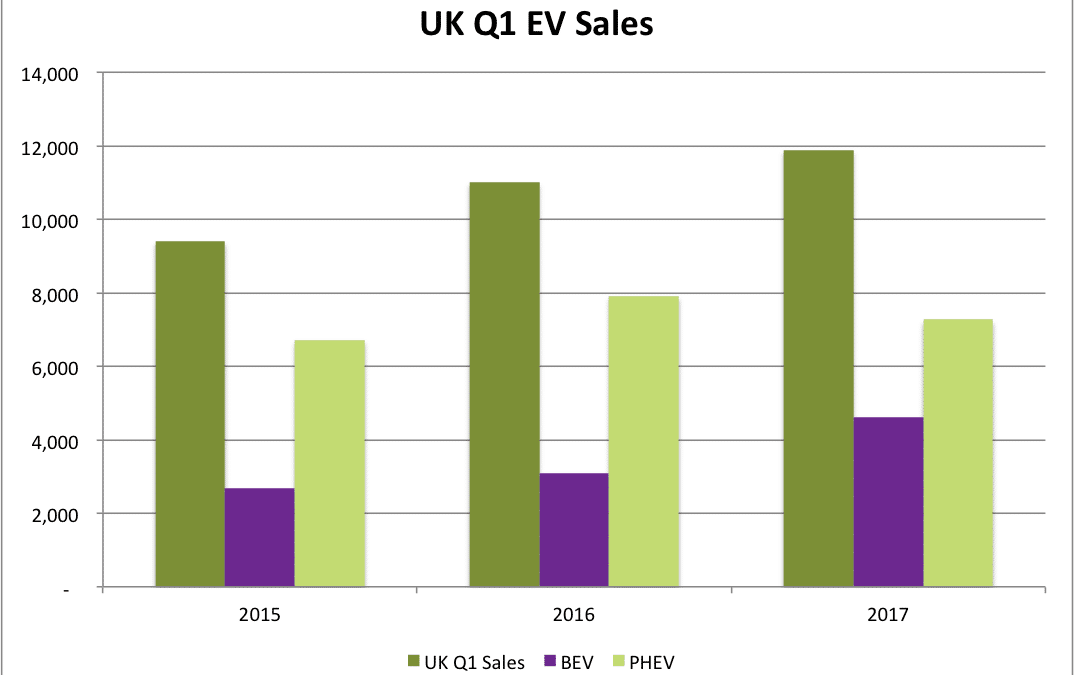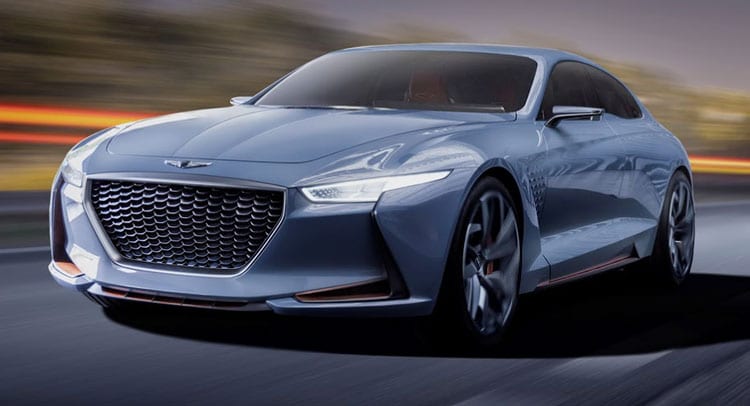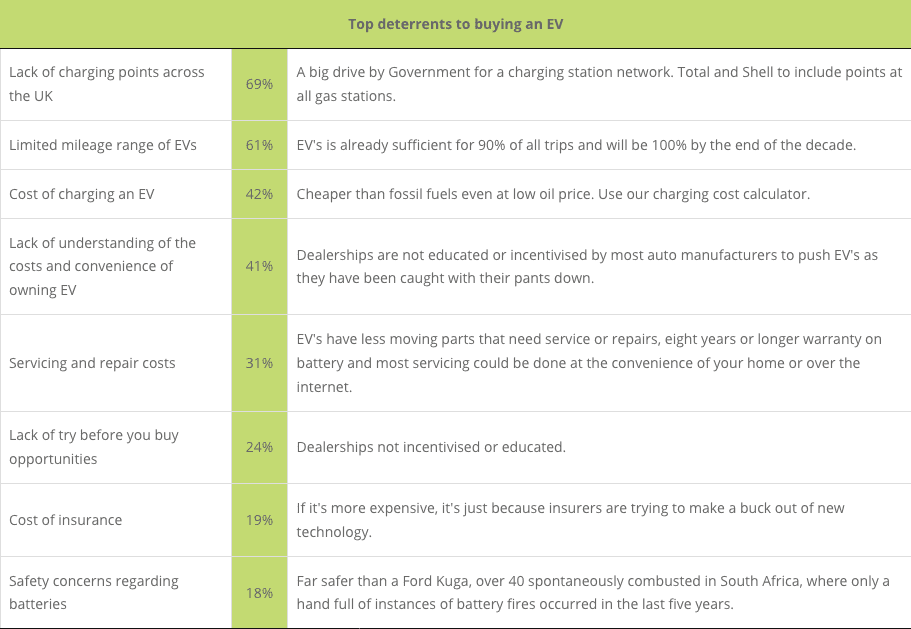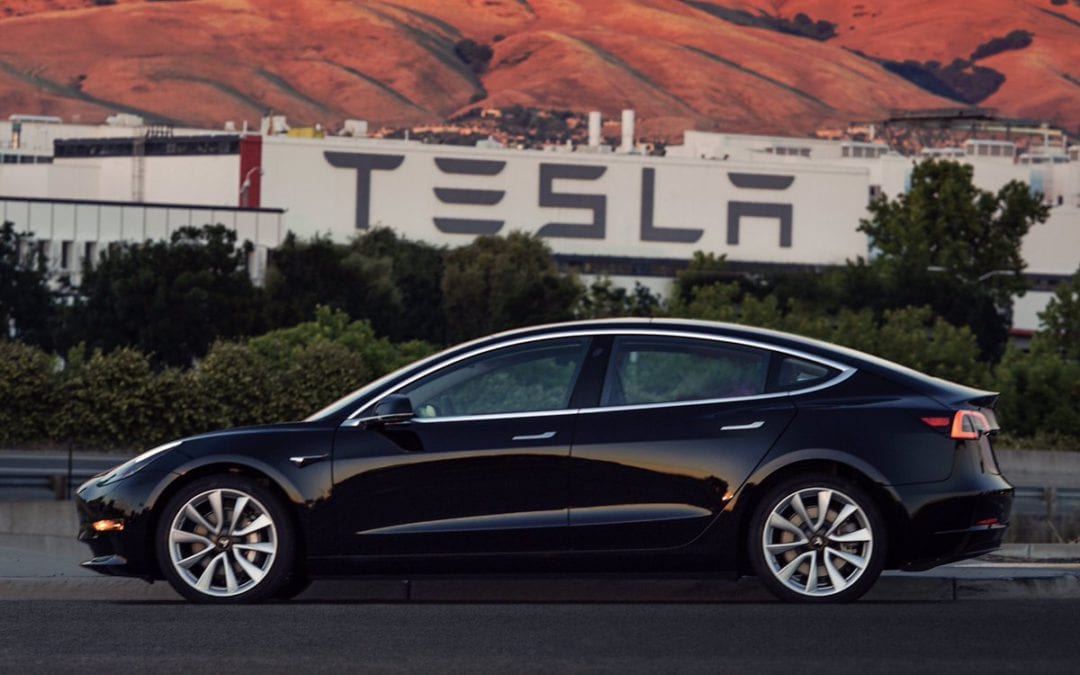
Top 5 Electric Vehicle News Stories of Week 27 2017
TOP EV NEWS #1 – DAIMLER AND BAIC TO DEVELOP EVs IN CHINA
Daimler and Chinese BAIC Motors this week agreed to increase the investment in the Sino-German Joint Venture, Beijing Benz Automotive Co (BBAC), to manufacture electric vehicles. The partners agreed to a further investment of 5 billion yuan (655 million euros / $735 million) at a signing of the heads of agreement in Berlin in the presence of German Chancellor Dr. Angela Merkel and Chinese President Xi Jinping. The investment by the German automaker is a further commitment to electric vehicles as it implements the aggressive electric vehicle strategy. BBAC is the localization of the Mercedes-Benz brand and will see its first electric vehicle rolling off the production line in 2020.
In June 2017 both partners agreed to strengthen their strategic collaboration through investments for New Energy Vehicles (NEVs) in China. As part of the investment agreement, Daimler announced its intention to acquire a minority share in Beijing Electric Vehicle Co., Ltd. (BJEV), a subsidiary of the BAIC Group, with the purpose of strengthening strategic collaboration with BAIC in the NEV sector.
The investment will be used to extend the BBAC plant in Beijing, established in 2005 and already Daimler’s largest Mercedes-Benz passenger car production hub, to become a BEV production hub in China. The establishment of a BEV production hub will commence with the building of an eBattery factory, which would be Daimler’s first foreign location of its global battery production network. Daimler plans to invest one of the ten billion euro earmarked for its electric vehicle strategy in the global battery production network for Mercedes-Benz vehicles. The network already includes the site in Kamenz, Saxony, built in 2010, where a second state of the art battery factory is being built with an investment of around 500 million euros. Mercedes-Benz will source the cell for its battery plant in Beijing from Chinese suppliers.

TOP EV NEWS #2 – ELON MUSK SHOWS TESLA MODEL 3 SN1
Tesla‘s Elon Musk announced last Sunday that production of the Tesla Model 3 would commence on Friday the 7th of July, two weeks ahead of schedule. Late Saturday evening Elon posted a tweet showing two pictures of the historic vehicle with serial number one that came off the production line. According to Elon Musk, the rule at Tesla is that the first person to pay the full price will get the first Tesla Model 3 SN1. He responded to a tweet that he has the first Roadster and Model X but not the first Model S. The average sales price for a Tesla Model 3 is estimated to be around $50,000 before incentives.

TOP EV NEWS #3 – JUNE EV SALES POWER AHEAD IN TWO KEY MARKETS
Electric car sales in the USA and Norway showed healthy gains over the same period in 2016. US EV sales increased 16% over that of June 2016 while in Norway sales jumped 62% for the same period. Electric vehicle sales in Norway now stands at a record 42% of new vehicle sales. Total US EV sales for the year so far stands at around 90,000 units, 39% more than in the first half of 2016. Read our detailed breakdown of EV sales for H1 2017 in Norway and the USA by clicking on the following links.
Summary of EV sales in Norway H1 2017
Summary of USA EV Sales H1 2017
TOP EV NEWS #4 – DONGFENG TO FOCUS ON EVs & SUVs
The state-owned Chinese automaker Dongfeng, a top four vehicle producer in China, which primary strategy has historically been the production of localized cars of various international auto companies such as the PSA Group, Hyundai, Honda, Nissan, and Kia. The company’s in-house developed vehicles are sold under the Dongfeng Fengshen brand which up to now had little EV models. On the 3rd of July, the GM of Dongfeng Fengshen announced during the unveiling of its AX4 SUV that the company will focus on SUVs and EVs from now going forward. The GM, Mr. Lui Hong, did not specify if the vehicles will be based on the new AX4 SUV, AX7 or the E70.
TOP EV NEWS #5 – VW DEVELOPING ROBOTS TO CHARGE EVs
VW and robotics firm Kuka this week signed a new co-operation agreement to develop robot-based innovations for all-electric and autonomous automobiles. The new agreement will expand the existing e-smart Connect project which includes a practical and user-friendly solution for charging high-voltage batteries of electric vehicles pictured here charging the VW GenE research vehicle. The Kuka developed charger is a charging solution developed for parking garages.
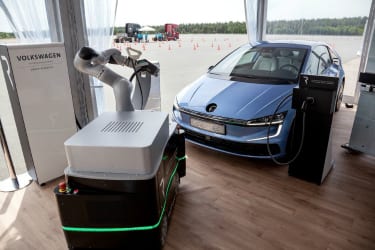 The Volkswagen Group is planning a strategic e-mobility offensive in the course of realigning its drive strategy. By the end of 2018, more than ten new electrified models will be launched on the market. A further 30 models will follow by 2025. These will be all-electric battery-powered vehicles. In parallel, Porsche will manage the ongoing expansion of infrastructure for quick-charging stations. The Volkswagen Group is providing a vision for autonomous driving of the future with the “Sedric” concept car. Audi recently established Autonomous Intelligent Driving GmbH for self-drive systems. This company is carrying out work for the entire Volkswagen Group.
The Volkswagen Group is planning a strategic e-mobility offensive in the course of realigning its drive strategy. By the end of 2018, more than ten new electrified models will be launched on the market. A further 30 models will follow by 2025. These will be all-electric battery-powered vehicles. In parallel, Porsche will manage the ongoing expansion of infrastructure for quick-charging stations. The Volkswagen Group is providing a vision for autonomous driving of the future with the “Sedric” concept car. Audi recently established Autonomous Intelligent Driving GmbH for self-drive systems. This company is carrying out work for the entire Volkswagen Group.
KUKA AG is one of the biggest providers of intelligent automation solutions and is the world’s leading manufacturer of production plants in the automobile industry. The Group’s own Research Department headquartered in Augsburg lays the technological fundamentals for innovations in industrial production and service robotics.

